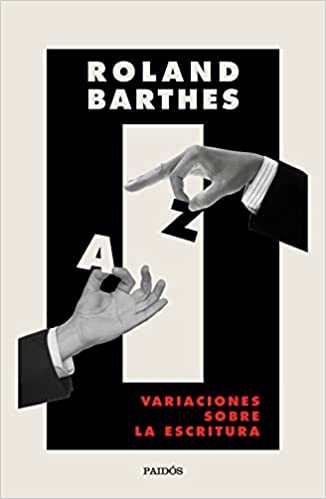Communicating is a gift. Language is the tool. the french writer Roland Barthes He delved into the depths of the language in search of the ultimate meaning of the verb, the noun, the adjective... of all types of words and linguistic units. But he also established his panlinguistic vision of the sound from which language is born (intonation or volume) or the sign through which we also make language and, therefore, communication.
The point is to make a treaty but with that informative spirit that makes us feel that, as it could not be otherwise, the issue of language and communication concerns all of us. Let's remember that about the gift and the tool with which this post began... If you have the tools and know their value, communication becomes that gift made into a weapon with which to convince, persuade or transmit like an echo wherever emotions interpret what was said. or written as music for reason.
So Roland Barthes is a kind of philosopher metalinguistic that leads us to a very particular wisdom where we can decipher etymologies while finding a special attachment to all those words arrived as if from sleight of hand. Because before the word there is nothing. And as soon as the first whisper awakens we can reconvert reality around whoever listens to us. Because our words transform a subjective reality that in essence is how we are told to a greater extent than what may or may not be.
Top 3 recommended books by Roland Barthes
The whisper of language: Beyond the word and the writing
The inner voice marks the step to the will. The inner whisper, like a barely audible rumor, is located between our interest in communicating and our ability to do so. Everything is born in that whisper. From the one that the writer attends when he is about to start a new chapter of his book to the one that externalizes the worst dictator made noise, confusion and even fear.
The whisper denotes a limit noise, an impossible noise, the noise of what, because it works perfectly, does not produce noise; To whisper is to let the very evaporation of noise be heard: the faint, the confusing, the trembling are received as signs of sound cancellation. And as for the tongue, can it whisper? As a word it seems that it is still condemned to gibberish; as writing, to silence and the distinction of signs: in any case, it always gives too much meaning for language to achieve the pleasure that would be typical of its subject. But the impossible is not inconceivable: the whisper of the language constitutes a utopia.
What kind of utopia? That of a music of meaning. The language, whispering, entrusted to the signifier in an unprecedented movement, unknown by our rational discourses, would not for that reason abandon a horizon of meaning: meaning, undivided, impenetrable, unnameable, would, however, be placed in the distance, like a mirage … the vanishing point of pleasure. It is the thrill of meaning that I question when listening to the whisper of language, of that language that is, for me, modern man, my Nature.
The obvious and the obtuse: Images, gestures and voices
The subjective understanding of language makes up a whole universe of interpretations, misunderstandings and other drifts that escape the sender of a message. Curiously and paradoxically, this limitation is also a richness of the language to be treated, according to the author, from the point of view of our own circumstantial conditions or, let us say, endemic to that reading between the lines on which one can debate to the point of absurdity when the closure or the obtuse meaning interferes.
In any attempt at expression we can distinguish three levels: the level of communication, that of meaning, which always remains on a symbolic level, on the level of signs, and the level that Roland Barthes calls significance.
But in the symbolic sense, the one that remains at the level of signs, two somewhat contradictory facets can be distinguished: the first is intentional (it is neither more nor less than what the author wanted to say), as if extracted from a lexicon overview of symbols; it is a clear and patent meaning that does not need exegesis of any kind, it is what is before the eyes, the obvious meaning.
But there is another meaning, the added one, the one that comes to be like a kind of supplement that the intellect does not manage to assimilate, stubborn, elusive, obstinate, slippery. Barthes proposes to call it the obtuse sense.
Variations on writing
Actually the title of an article that Roland Barthes wrote in 1973, Variations on writing, is presented as a compilation of texts by its author that cover the phenomenon in question from all perspectives: topics such as grammar and linguistics, of course, but also authors such as Benveniste, Jakobson or Laporte, structure a theoretical mosaic in which There is also room for notes on Barthes's own reflections on the matter or even comments as unusual as the one dedicated to the Hachette dictionary.
From his perspective as a semiologist, Barthes views writing not as a procedure that we use to immobilize and fix articulate language, always fugitive in nature. Quite the contrary, for him writing considerably exceeds, and, so to speak, statutorily, not only oral language, but also language itself, if we enclose it, as most linguists want, in a pure function of communication. The reflection that is established from here is, as always in the case of Barthes, as daring as it is transgressive, since he ends up turning his own texts into a creative act far beyond scholarly analysis.



